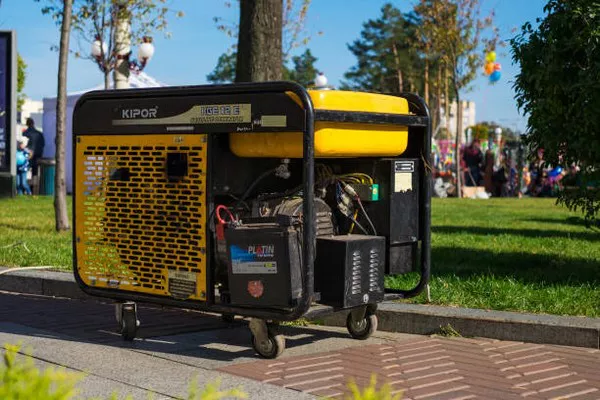In today’s fast-paced world, uninterrupted power supply is crucial for maintaining the smooth functioning of households. Power outages can occur due to various reasons such as storms, grid failures, or maintenance issues. To ensure that your home remains powered during such situations, investing in a reliable generator is essential. With a plethora of options available in the market, selecting the best generator for home use can be a daunting task. This article aims to guide you through the key factors to consider when choosing a generator, as well as highlight some of the top contenders in the market.
Understanding Your Power Needs
Before delving into the features of different generators, it’s important to assess your specific power requirements. Consider the essential appliances and electronics you would like to power during an outage. Calculate the total wattage needed to run these devices simultaneously. This will help you determine the generator’s capacity, ensuring that it can meet your household’s power demands.
Types of Generators
There are two main types of generators suitable for home use: portable generators and standby generators.
Portable Generators:
Portable generators are versatile and can be moved around as needed. They are ideal for powering essential appliances and electronics during short-term outages. Portable generators come in various sizes, making it important to choose one that aligns with your power needs. They typically run on gasoline, propane, or diesel.
Standby Generators:
Standby generators are permanently installed outside your home and automatically activate when a power outage is detected. These generators are connected to your home’s electrical system and can provide a seamless transition during blackouts. Standby generators are available in a range of capacities and often run on natural gas or propane.
Key Features to Consider
When evaluating generators for home use, several key features should be taken into account to ensure optimal performance and reliability:
Wattage and Capacity: The generator’s wattage should match or exceed the total power requirements of the appliances you plan to run. Pay attention to both the running watts and surge watts, as some devices may require a higher initial power surge.
Fuel Type and Fuel Efficiency: Consider the availability and convenience of the generator’s fuel type. Gasoline generators are common but may not be ideal for long-duration outages. Propane and diesel generators are more fuel-efficient and often provide longer runtimes.
Runtime and Fuel Tank Capacity: Evaluate the generator’s runtime on a full tank of fuel. A longer runtime is crucial for extended power outages. Additionally, a larger fuel tank capacity reduces the frequency of refueling, enhancing convenience during emergencies.
Noise Level: Generators can be noisy, so it’s essential to consider the noise level, especially if you live in a residential area. Look for generators with lower decibel ratings for a quieter operation.
Start Mechanism: Generators typically have either electric start or recoil start mechanisms. Electric start generators are more user-friendly, especially for those with mobility issues, while recoil start generators require manual effort.
Top Generator Picks for Home Use
Honda EU2200i: Known for its reliability and quiet operation, the Honda EU2200i is a compact and portable inverter generator. With a running wattage of 1,800W and a lightweight design, it is suitable for powering essential appliances during short outages.
Generac GP6500: The Generac GP6500 is a portable generator with a robust 389cc engine, providing a continuous output of 6,500W. It features a large fuel tank for extended runtime and is equipped with a convenient electric start.
Champion Power Equipment 100294: For those seeking a versatile and fuel-efficient option, the Champion Power Equipment 100294 is a dual-fuel generator that runs on both gasoline and propane. With a 7,500W running capacity, it offers flexibility and convenience during power outages.
Kohler 20RESCL-200SELS: For a reliable standby generator, the Kohler 20RESCL-200SELS stands out with its 20,000W capacity and automatic transfer switch. This generator seamlessly powers your entire home during outages, providing peace of mind.
Conclusion
Choosing the best generator for home use requires careful consideration of your specific power needs and the features offered by different models. Assessing factors such as wattage, fuel type, runtime, noise level, and start mechanism will help you make an informed decision. Whether opting for a portable generator like the Honda EU2200i or a standby generator such as the Kohler 20RESCL-200SELS, prioritizing reliability and efficiency ensures that your household remains powered during unexpected outages.

